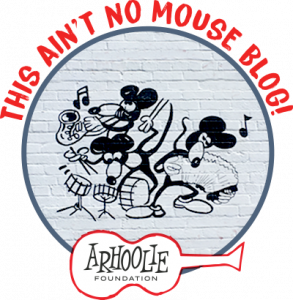The Blues on My Block: Discovering the Roots Music History of Downtown Berkeley
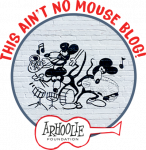
I recently began working on a project to help catalog some of the treasure trove of recordings in the vaults at Arhoolie. When I began the task of compiling metadata and listening through these mostly unreleased tapes from Chris Strachwitz’s voluminous collection, I expected to learn a lot about the history of American roots music. I was especially enthusiastic to get a better sense of the musical landscape of the Louisiana and Texas borderlands, a region that figures prominently in my dissertation-in-progress. What I didn’t anticipate was that I would also be taking a deep dive into the musical history of my own neighborhood, Downtown Berkeley, just to the west of the Cal campus.
The very first tape I pulled to process was from the Berkeley Blues Festival of 1965, recorded less than a hundred yards from my front door, at Berkeley Community Theatre. Just steps from the park where I watch sunsets, rock pioneers Big Mama Thornton and Chuck Berry and soul legends the Chambers Brothers ripped through roaring sets in front of an exultant audience of rhythm and blues fans. This led me down an internet rabbit hole, where I learned about The Berkeley Folk Music Festival Project, spearheaded by SUNY Brockport history professor Michael J. Kramer (I also thoroughly recommend the project’s Instagram account (@berkeleyfolkmusicfestival). They don’t seem to host public concerts at BCT anymore, but there’s often live music of various sorts right outside at Martin Luther King Civic Center Park. Even on weeks when there isn’t a festival or a pow wow, there is usually a folk singer, a zither player, or a dobro maestro busking at the weekly Farmer’s Market in front of my apartment, and the mighty Freight & Salvage is just a couple of blocks away. There always seems to be accessible folk music in Downtown Berkeley for a rent-burdened grad student on strike for a living wage.
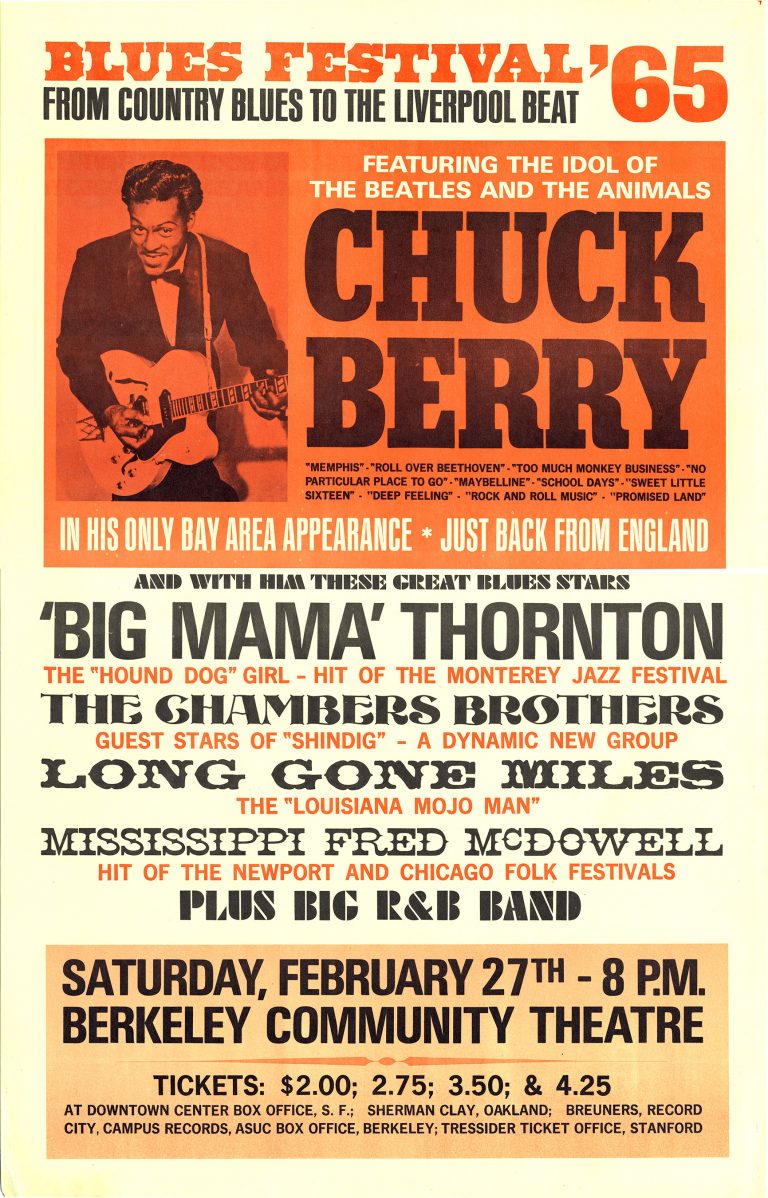
Poster for the 1965 Berkeley Blues Festival. Chris Strachwitz Collection.
Several other fascinating Strachwitz tapes I encountered were recorded a couple of blocks in the other direction at the studios of local public radio standard-bearers KPFA. Strachwitz recorded the station’s Traditional Music Day fund drive in 1975 and 1976, capturing unique performances by such diverse Bay Area artists as the Reverend A.C. Robinson, the San Francisco Folk Music Club, Queen Ida & Her Zydeco Band, and the Chinese traditional group Flowing Stream Ensemble. The perpetually embattled KPFA is still going strong, promoting roots music new and old and giving a platform to artists and genres that have precious few outlets in the contemporary media landscape. Equally significant are the station’s journalistic contributions, as I rediscovered through a vinyl record of an audio documentary about the UC Berkeley Free Speech Movement, produced by KPFA in 1964. On-the-ground reporting of the occupation of Sproul Hall and on-campus speeches by FSM leaders like Mario Savio are the main attraction, but a performance of “Blowin’ in the Wind” by folk singer and activist extraordinaire Joan Baez at the protest is otherworldly.
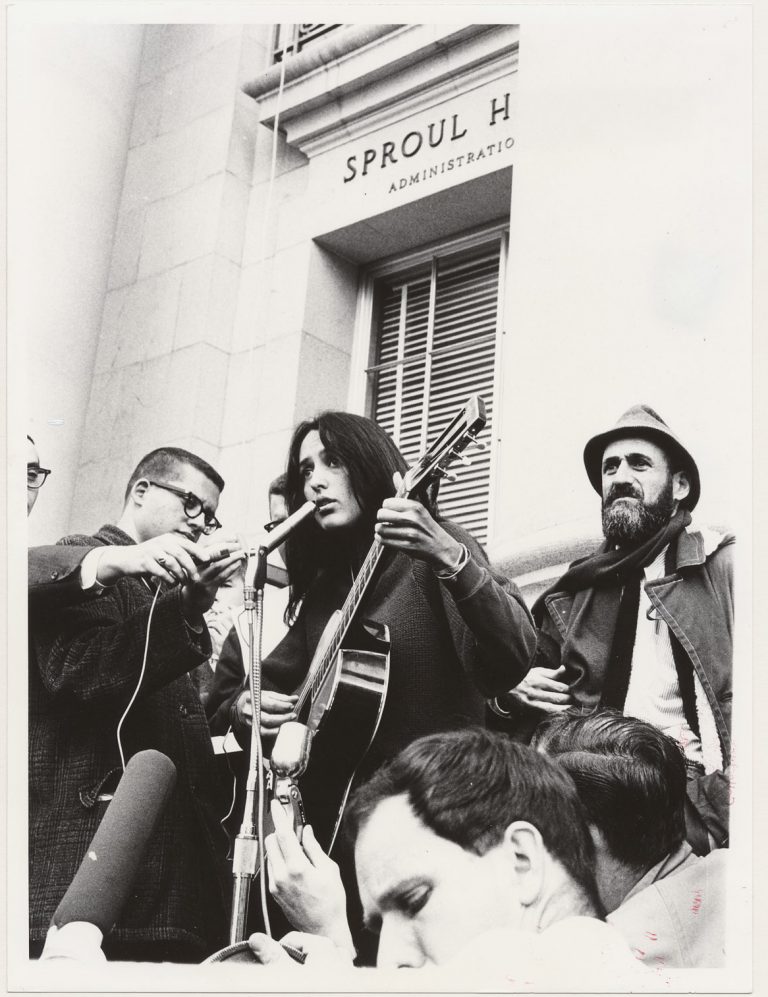
Joan Baez on Sproul Hall steps, December 2, 1964. Photo from the Free Speech Movement Photographs, Bancroft Library, UC Berkeley.
As I march with my colleagues on the same plaza for a different cause, I can’t help but reflect on the surprising ways that folk, blues, and roots music have inspired so many generations of social justice struggle on and off campus, just steps away from my front door. With my tambourine in one hand and a United Auto Workers sign in the other, I hear echoes of that era bouncing off the walls of the student union as the battery-powered bluetooth PA system streams a version of Pete Seeger’s “Solidarity Forever” played off of someone’s Spotify. When I get home, I’ll open up another one of Arhoolie’s hidden gems and connect to a different time and place—but one that’s a whole lot closer than I ever knew.
Kyle Jackson is a PhD candidate in History at UC Berkeley.
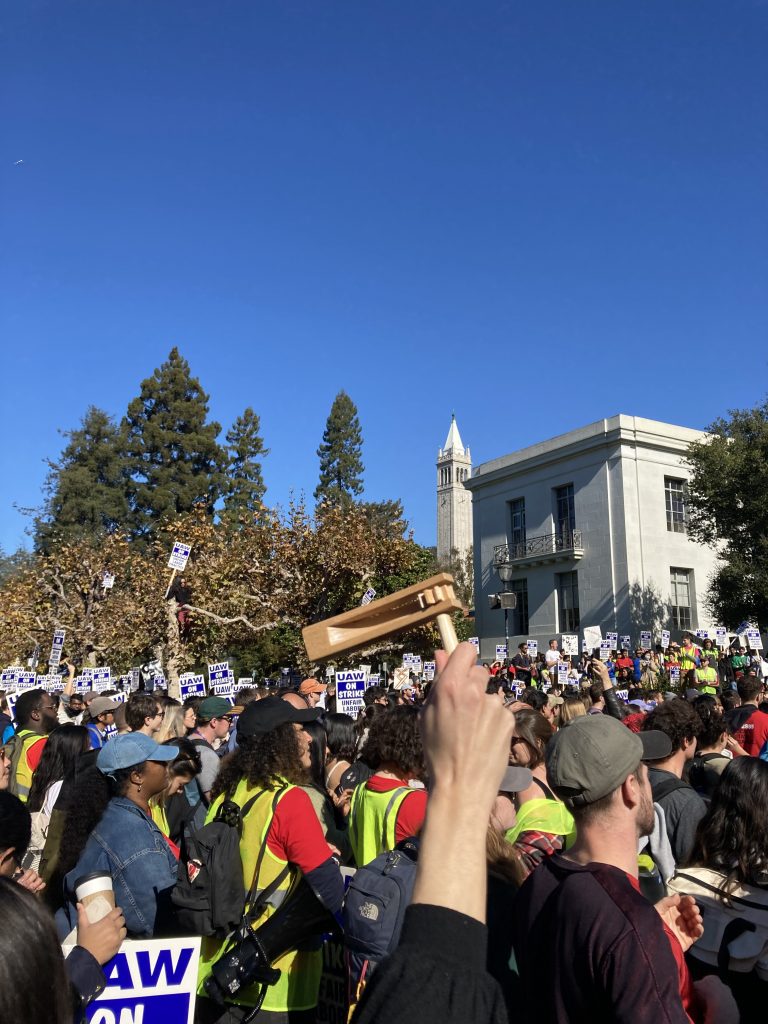
Striking postdoctoral scholars and academic researchers at UC Berkeley, November 2022. Photo by author.

